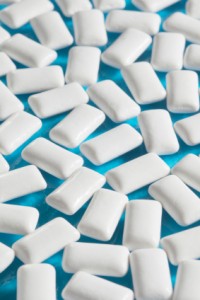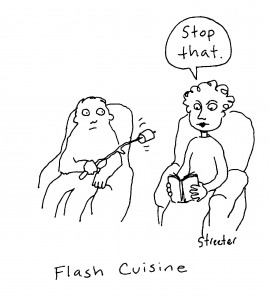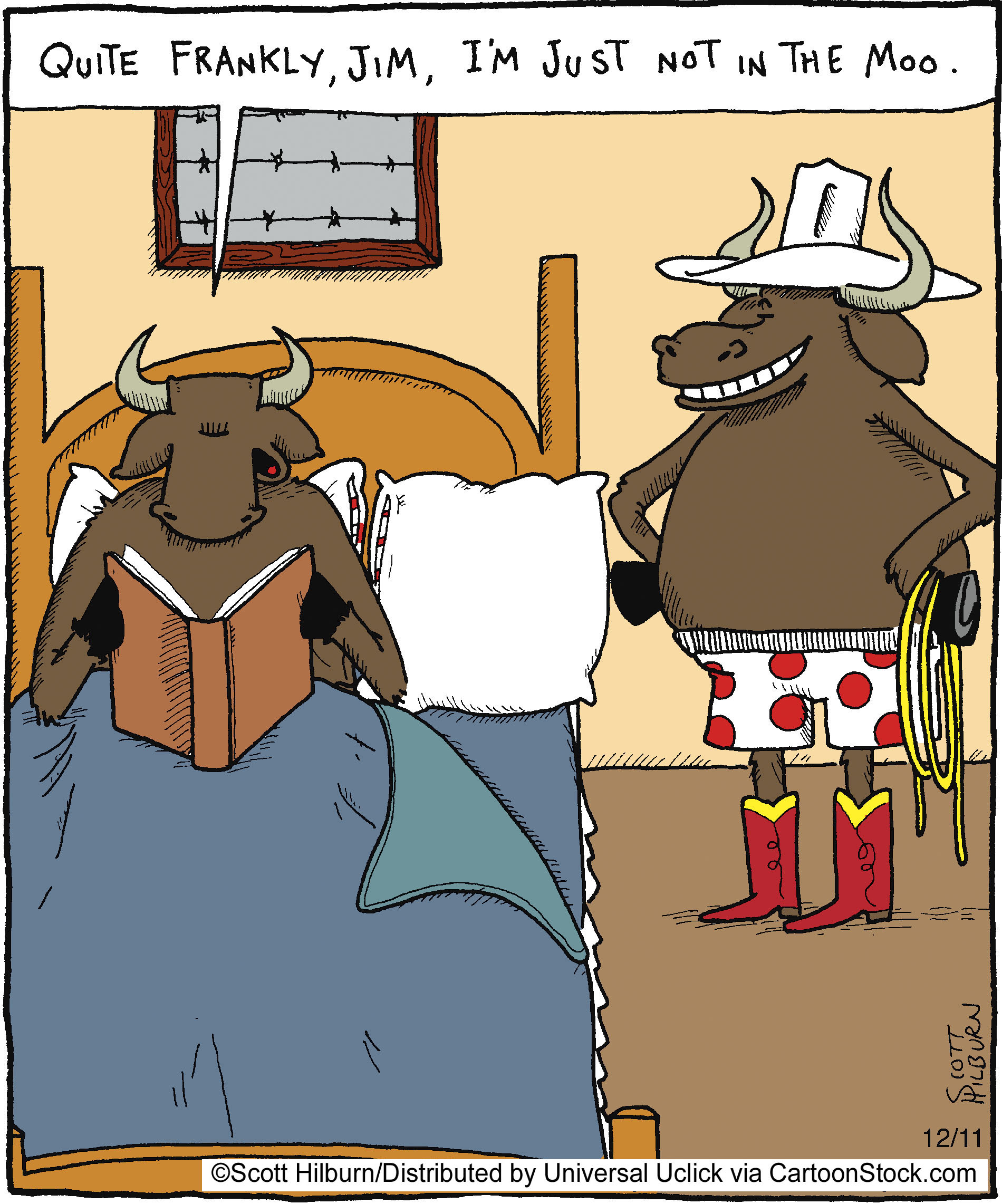Just chew your [fill in the blank] away…with Zoft
[Photo does not depict actual product]
No! It really works! And it’s as easy as chewing gum.”
“What’s that,” you ask?
Now you can just chew the menopause [blues/anxiety/hot flashes, mood swings, night sweats, heart palpitations, urinary problems AND vaginal dryness] away! Wow – who knew it was so simple? In fact, Zoft ® Balance Gum (previously called Zoft Menopause Gum) will cure what ails you in just weeks if not days, with the added benefit of fighting dental decay, improving concentration AND fighting bad breath.
Zoft balance is a unique blend of Dong Quai Root, Black Cohosh Root Extract, Damiana Leaf, and Mexican Wild Yam Root, harnessing the power of indigenous knowledge to fight menopausal symptoms. Moreover, this breakthrough has been featured on ‘The View’ not once, but TWICE, which of course, provides an authoritative testimonial as to its efficacy.
Wait! There’s more….the company also offers Fulfill gum (pun intended???) to enlarge your breasts WITHOUT surgery, and Slim gum to help you get back into that size 4 pair of jeans. And just in case your partner feels left out, the company manufactures Relax gum to take that stress out of his or her life.
One-stop shopping for all that ails. Chew on that, won’t you?
Read More
Wednesday Bubble: Are you in the moo? Sex and a sense of purpose
What are we bursting this week? How about midlife and sexual desire. Frankly, I’ve got sex on the brain, sex in midlife, that is. And what we need to do to insure that it continues to be enjoyable, that we desire it and that we please our partners as much as we hope that they please us. Consequently, I am reposting this piece from earlier in the year, with the hope that with a sense of purpose, you’ll become more in the moo. Or mood. Whatever the case may be.
Sexual desire. In midlife, sexual function and sexual desire aren’t well understood, primarily because there are so many factors that enter into equation. This may be why certain silver bullets, like a female viagra, has failed to show any significant improvements in the desire department. And yet, researchers continue to accrue more information about the things that influence desire in women, ranging from the quality of intimate relationships to social support and overall wellbeing. The manufacturer who discovers a pill that addresses all of these will have struck gold. Meanwhile, back in reality, as many as 75% of women in midlife rate sexual health as important enough to warrant further exploration.
Fortunately, we may have another piece of the puzzle: ‘sense of purpose,’ which appears to be associated with greater wellbeing, happiness, life satisfaction, self-esteem, personal growth and optimism. A sense of purpose also appears to improve health, prevent certain diseases and may even improve cognitive function, thereby staving off mental diseases associated with aging. In a study that appears in the online version of Menopause, 459 menopausal women who were sexually active with a partner were followed over three years. Each year, they were asked about their emotional wellbeing (including their general mood, anxiety and depression as well as how often they engaged in and enjoyed sexual activity (specifically desire, type of activity and hugging and kissing). In the final year, they took a test that rated their sense of purpose on a five point scale ranging from ‘there is not enough purpose in my life’ to ‘the things I do are all worthwhile.’
The findings?
A greater sense of purpose equaled a great enjoyment of sexual activities, independent and regardless of other specific life circumstances. In other words, psychosocial functioning, e.g. social support, quality intimacy and overall wellbeing influenced the quality of these women’s sexual lives. On the other hand, menopausal status and use of hormone therapy did not appear to play a significant role in how often women engaged in sex or if they enjoyed it. This is important, as it means that psychosocial wellbeing may ultimately be more important than hormones.
In so far as the desire to engage? Women who were younger, had more social support, felt better about themselves and weren’t suffering from vaginal dryness tended to want sex more than their older peers who didn’t enjoy these factors.
Not surprisingly, many of the factors that researchers stress may help desire and engagement are associated with greater nitric oxide levels, which Dr. Christina Northrup says can help combat sexual dysfunction and improve pleasure.
When it comes to sex in midlife? It may help to think ‘sense of purpose,’ a real sense of purpose, now. (Poetic license, Chrissie!) I’m all for it if improves activity and desire without drugs.
Read MoreSpanx a lot…active wear and a whole lotta hot
A few years ago, I ran a hilarious video, posted by Fighting Mad Mary featuring her friend GloZell (star of the You Tube Glozell channel), trying to squeeze her frame into a pair of spanx capri. For those of you who are unfamiliar with spanx, it was clearly invented by a man because no sane woman would ever do that to another female.
That’s what I thought. Until I encountered SpanxActive. Say what? The hottest, most uncomfortable material to hold in the stuff for your workout? Talk about torture! And whole lotta hot. Seriously, why are you wasting your time and dollars on Hot Yoga when you can buy Spanx and sweat to your heart’s desire?
In any case, I would love to share GloZell’s experience with Spanx because we need to laugh as much as we need to cry. In this particular case, you may do both as you watch GloZell attempt to deal with the challenge at hand.
This one’s for you GloZell. You had me at Spanx!
Happy Friday!
Read More
Wednesday Bubble: Got symptoms? Got milk? An udder disaster…
Milk is being touted as the next best thing, that is, when it comes to hormonal symptoms. In fact, a new campaign sponsored by the California Milk Processor Board centers around the claim that milk can help reduce the symptoms of PMS. EverythingIdoiswrong.com offers global gauges of PMS symptoms, packaged apologies for men who feel victimized by PMS and even analyzes or verifies their mistakes so that they can avoid them during the next cycle. In a piece about the marketing effort in the Washington Post, Executive Director of the California Milk Processor Board, Steve James, is quoted as saying that the strategy is to “disarm the situation surrounding PMS and its effects,” both for women and individuals around them who are suffering from their mood swings and other symptoms.
Say what?!!!
Is this advertising for milk or a drug claim?
According to the website, the claims about milk are derived from a review that appeared in the year 2000 in the Journal of the American College of Nutrition. In the review, the authors discuss the potential links between altered calcium balance and affective disorders, such as depression and anxiety. Because women with PMS reportedly have calcium fluctuations that interfere with hormonal balance, some researchers have hypothesized that this imbalance can lead to both mood and other features of PMS. In these studies, however, participants obtained their calcium through supplements and not through dietary means; this enabled the researchers to control and standardize intakes (which averaged as much as 1300 mg calcium daily). Translated into daily milk consumption, this means that a person would have to drink more than 4, 8 oz glasses of milk daily to achieve the level of calcium used in clinical studies.
Honestly, do you know anyone over the age of “tween” who consumes that much milk?
Regardless of the studies cited, the claims about milk are exaggerated and inconclusive. Many of the studies were poorly designed or relied upon recall. However, one has to wonder if the milk-PMS claims will set off a cascade of others that stretch to the other end of the hormonal spectrum –menopause — where too much calcium is believed to be too much of a good thing: although calcium may offer protection against osteoporosis, it may also increase the risk for heart disease in some women.
Let’s get away from the hard science for a moment and take a closer look at the campaign. The inference:
- Women: your PMS causes undue suffering to people around you, especially your male partners
- Men: humor the woman in your life. If you want to save your relationship, friendship, partnership, etc, create a photo with puppy eyes, film a video apology or better yet, make fun of her. Oh, and have her drink milk.
Don’t know about you but this one is so absurd it may not even be bubble-worthy. Hey California Milk Processor Board – you may want to add a few women to your marketing team. This one’s an udder disaster.
Hat tip to Reuters Health Executive Editor, Ivan Oransky for the campaign heads up. (I tried to milk it Ivan – how’d I do?!!)
Read MoreWednesday Bubble: it truly is the best medicine
I’m especially happy to write this Wednesday Bubble because it’s inspiring and makes me want to jump for joy! Or better, yet, laugh a little. And even though this has been posted previously on Flashfree, it’s never to late to remind ourselves of the lighter side.
Several years ago, researchers discovered that humor therapy and anticipation of laughing or being amused (also known as mirthful laughter) positively affects immunity. In fact, findings from a series of five separate studies among healthy men demonstrated that just anticipating watching a funny video could increase beta-endorphins (hormones that elevated mood) as much as 17% and human growth hormone (which contributes to more optimal immunity) by as much as 87%. Elevated hormones levels were maintained throughout the video and as long as 12 hours after. Conversely, hormone levels did not increase in men who who did not anticipate watching a humorous video and instead, browsed magazines.
Similar results were seen in another study among healthy adult women; this time mirthful laughter was associated with significant declines in stress hormones and improvements in natural killer cells, which contribute favourably to immune function.
Over the past two years, researchers have been examining the effects of mirthful laughter on actual disease states. Findings of a year-long study presented two years ago at the Experimental Biology Conference suggest that watching a funny, 30-minute video on a daily basis may impart a long lasting impact on health that includes:
- Lower stress hormones (epinephrine and norepinephrine) and related stress levels
- Lower levels of inflammation that can contribute to disease
- Significant improvements in HDL cholesterol
- Significant reductions in harmful C-reactive protein levels (a protein that increase the risk for heart disease, heart attack, stroke and death)
This particular study evaluated laughter in patients with diabetes, high blood pressure and high cholesterol who were also taking medication. Notably, similar positive outcomes were not seen in patients who did not have the benefit of watching the funny video.
What can we take away from this work and what does it have to do with menopause? Actually, I’d like to ask, what doesn’t it have to do with menopause and midlife?
During the transition, women are subject to hormonal stressors that affect mood, functioning, wellbeing as well as disease risk. If there are simpler, more natural ways to improve healthy states, for example, by daily laughter, shouldn’t we reach for them? I’d rather take a dose of funny over pharma any given day.
Here’s my gift to you: laugh today. And tomorrow. And the next day. And spread the joy. Nothing like a deep belly laugh to take some of life’s challenges away.
Read More










